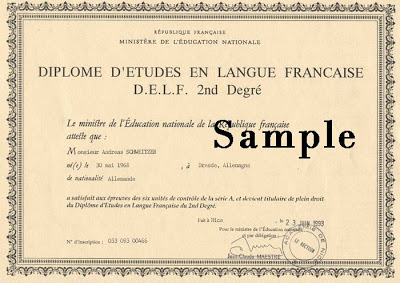Curriculum
Curriculum Guide
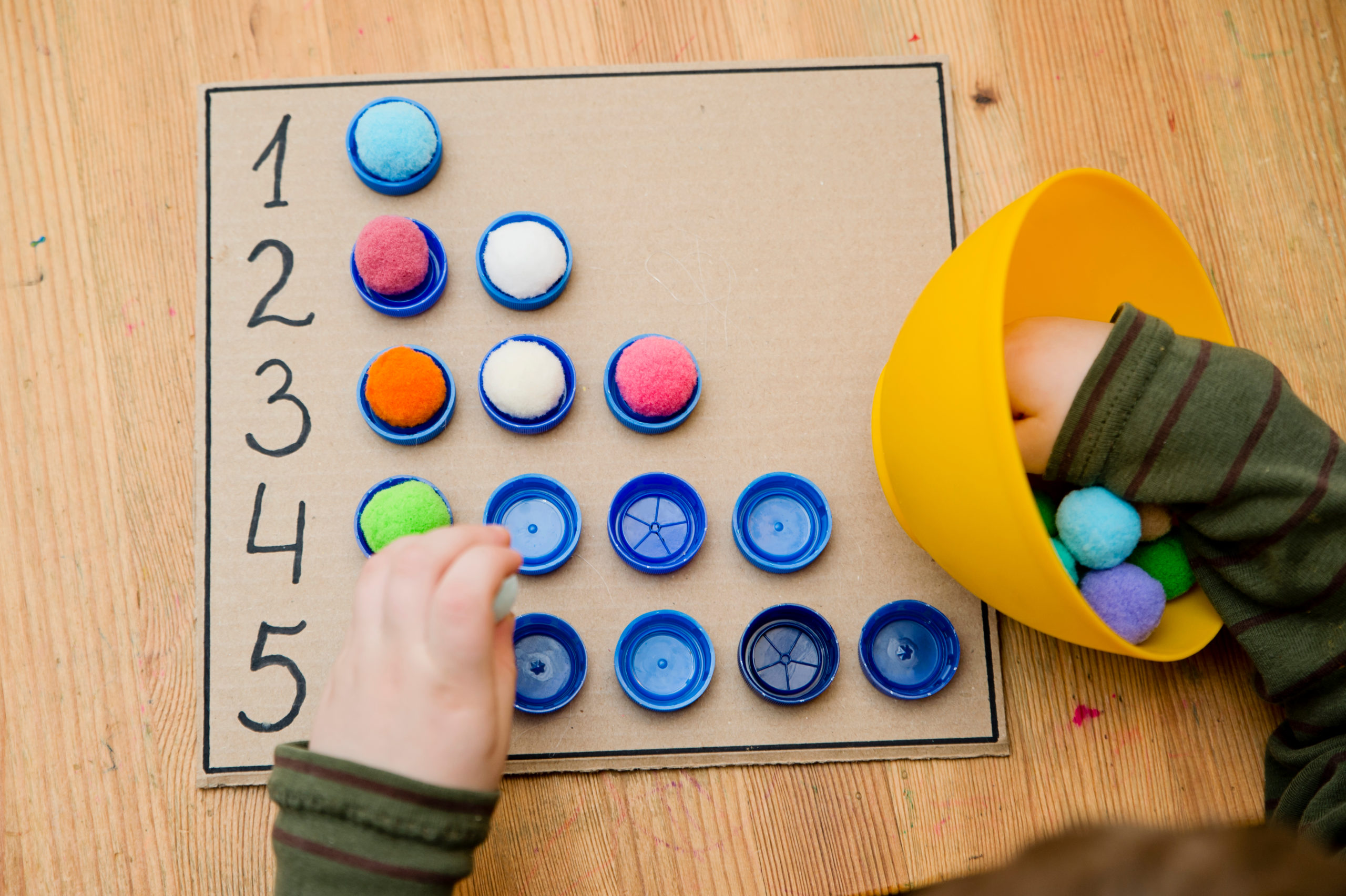
Cycle 1: La Maternelle
PS-MS-GS ~ EC3-EC4-Kindergarten
Cycle 1, “La Maternelle,” uses a play-based approach to focus on five distinct areas:
- Acquiring language and discovering writing
- Becoming a student
- Moving and communicating with one’s body
- Discovering the world
- Perceiving, feeling, imagining, and creating
To teach these areas, La Maternelle uses a variety of methods and hands-on activities. Our talented teachers apply the best elements of many approaches in teaching the French curriculum. We combine independent Montessori-inspired activities with the Reggio Emilia philosophy that guides children to take an active role in their learning and express themselves however they feel they can.
Kindergarten (Les Grands) is a year of preparation for elementary school while still part of the Maternelle. The curriculum focuses on reading, writing, and mathematical readiness. Students develop their language skills further as they start to “write” stories and learn letter and sound recognition. Kindergartners increase self-discipline, attention span, and listening skills to prepare for elementary school—science, art, music, theater, and physical education complete the curriculum.
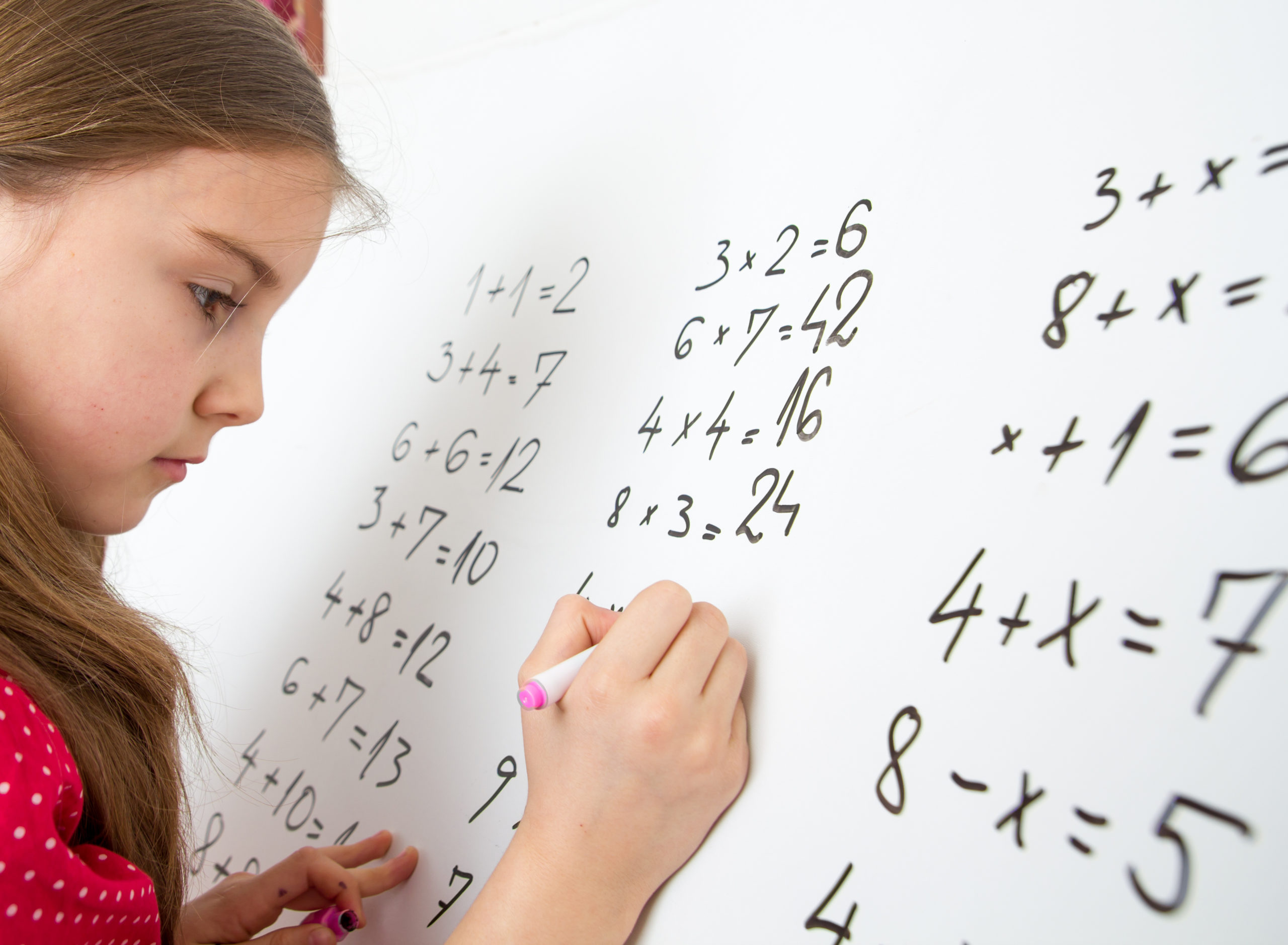

Cycle 2: CP, Ce1, Ce2 ~ grades 1, 2, and 3
Cycle 2 builds upon the child’s natural curiosity fostered and instilled in Cycle 1, and those early experiences shape this next phase of learning. The concepts learned in Cycle 2 are deepened and nurtured in Cycle 3, resulting in full proficiency of the curriculum at the end of elementary school.
In cycle 2, students begin to read and write in both languages, with skills progressively building in each subsequent grade. This learning cycle teaches children essential reading and writing skills through a phonics-based approach, and upon completing this cycle, children can communicate confidently in both French and English.
Reading strategies, skills, acquired knowledge, and new concepts transfer naturally from one language to another. Students enrich their vocabulary and sentence structure and start to apply simple grammatical rules. At this stage, the pre-writing “graphisme” activities that filled the children’s’ cahiers and inspired their artwork in Cycle 1 now take on a new purpose – moving from practiced gestures to the writing of beautiful cursive letters. What were once lines, humps, loops, and zig-zags are now deliberate and purposeful writing. Moving from “graphisme” in Cycle 1 to handwriting in Cycle 2 is just one example of the continuum from one cycle to the next that demonstrates the French curriculum’s forethought and purpose.
Using a hands-on approach in mathematics, they learn numeration, simple geometry, how to solve word problems, and the metric system. Teachers encourage developing mathematical practices and students’ confidence, flexibility, and fluency in their mathematical thinking. Their knowledge of the world around them expands through science, history, geography, and civics. Through limited computer use, students become familiar with the technology available and learn how to research information.
Creativity is an integral part of any child’s development. Arts education is a powerful tool for learning. The visual arts, music, and theatre are vital components of our elementary curriculum that develop sensitivity and creativity. We believe physical exercise is an essential component of a child’s education. Physical activity helps children develop gross motor skills through familiarity with a wide range of sports, games, and movement such as yoga and dance. These activities build essential social skills like teamwork, cooperation, and healthy competition while allowing students to release energy to focus and learn better in the classroom.
Cycle 2 students learn to take responsibility for their actions and work cooperatively, and they participate in establishing classroom rules. They adopt good study habits and understand the importance of treating everyone with kindness and respect.
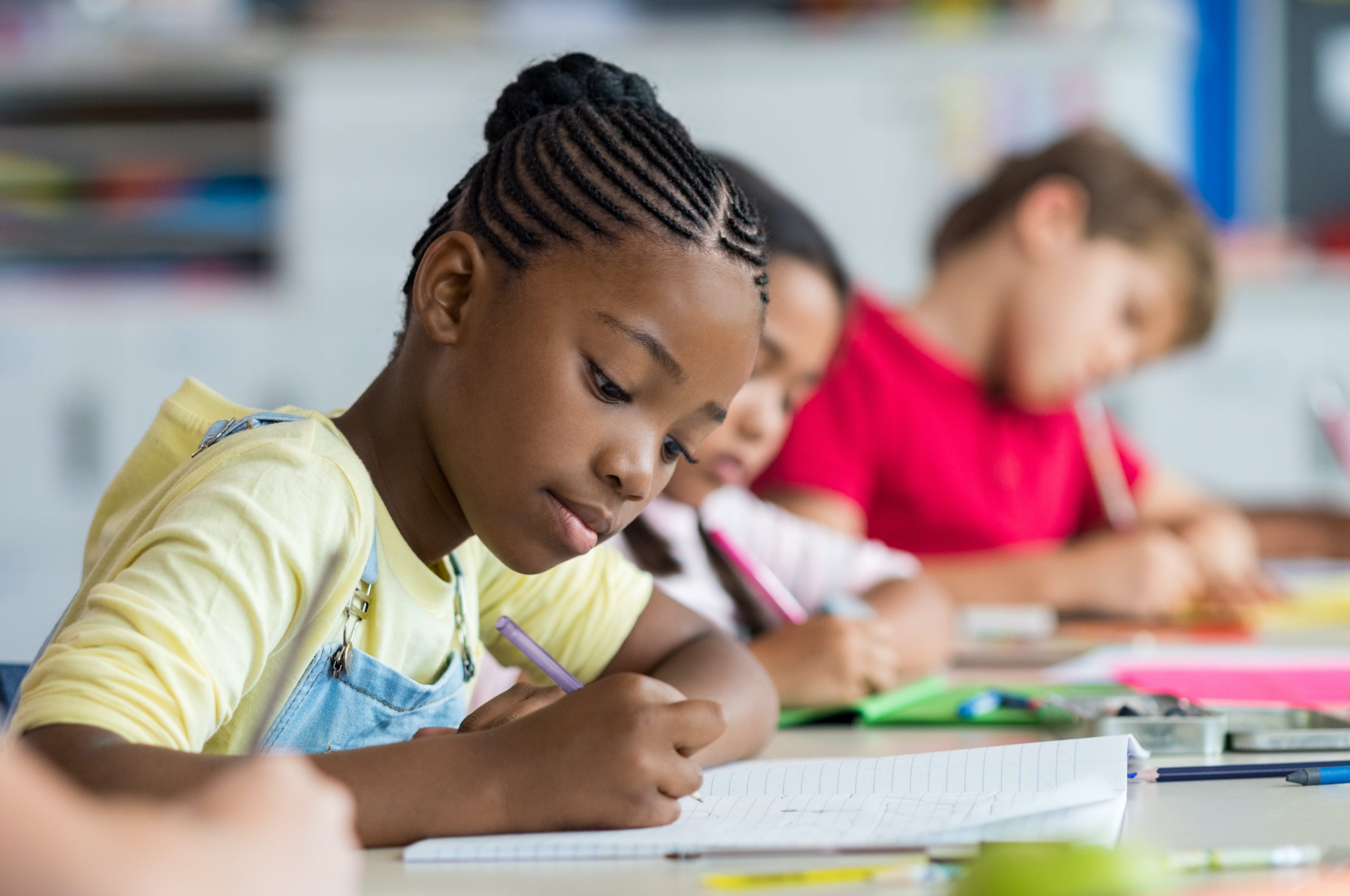
Cycle 3: CM1 and CM2 ~ grades 4 and 5
In cycle 3, students continue to expand their knowledge in all subjects. They sharpen their French skills through presentations, dictation, literature, and carefully planned projects and lessons. In math, students work on abstract and concrete problem solving, geometry, and organizing data. Art, music, English Language Arts, and physical education continue to play an important role.
Reading, Writing, Language Skills
In cycle 3, students can listen, express themselves in front of others, and ask questions using specific vocabulary. There is an emphasis on dictation by memorizing and reciting short texts and poems. Reading and writing are integral components of all subjects, and students are honing their French and English skills. Students read age-appropriate and carefully selected literary texts. They learn to identify main elements, analyze details, and form and express opinions. Students engage in both creative writing and research-based, non-fictional writing. Students continue to improve their grammar skills, vocabulary, and spelling to enhance their oral, written, and literary comprehension. They learn to differentiate between types of sentences and identify word functions. Students pay special attention to word agreement, conjugating verbs correctly, and lexical spelling.
Mathematics
In mathematics, students continue to expand on their skills through problem-solving and learning various processes. They work on functions concerning whole numbers, decimals, and fractions. Students can solve problems mentally, on paper, and with the use of a calculator. They learn the principles of geometry and use tools such as a compass to demonstrate and practice these principles. Concepts of measurement such as time, length, and money are studied. Students integrate these mathematical elements to learn how to analyze and organize data.
Sciences
In cycle 3, students learn more about the natural world around them and the environmental effects people have on it. They learn to distinguish between facts, hypotheses, and opinions. Through observation, questioning, and practice, they strengthen their natural curiosity towards the world around them. Topics covered include matter, water, Earth, sky, energy, living organisms, and the human body.
Technology
In cycle 3, students use computers and iPads to gather and share information for research-based projects and communication with their correspondents in France.
History and Geography
In cycle 3, students learn to identify and describe periods in history. Specifically, they study Prehistoric times, Antiquities, Middle Ages, The French Revolution, and 20th-century historical events. In geography, they explore how people live in different areas, starting on a small local level and expanding globally. They learn about various landscapes, economies, methods of travel, and natural resources.
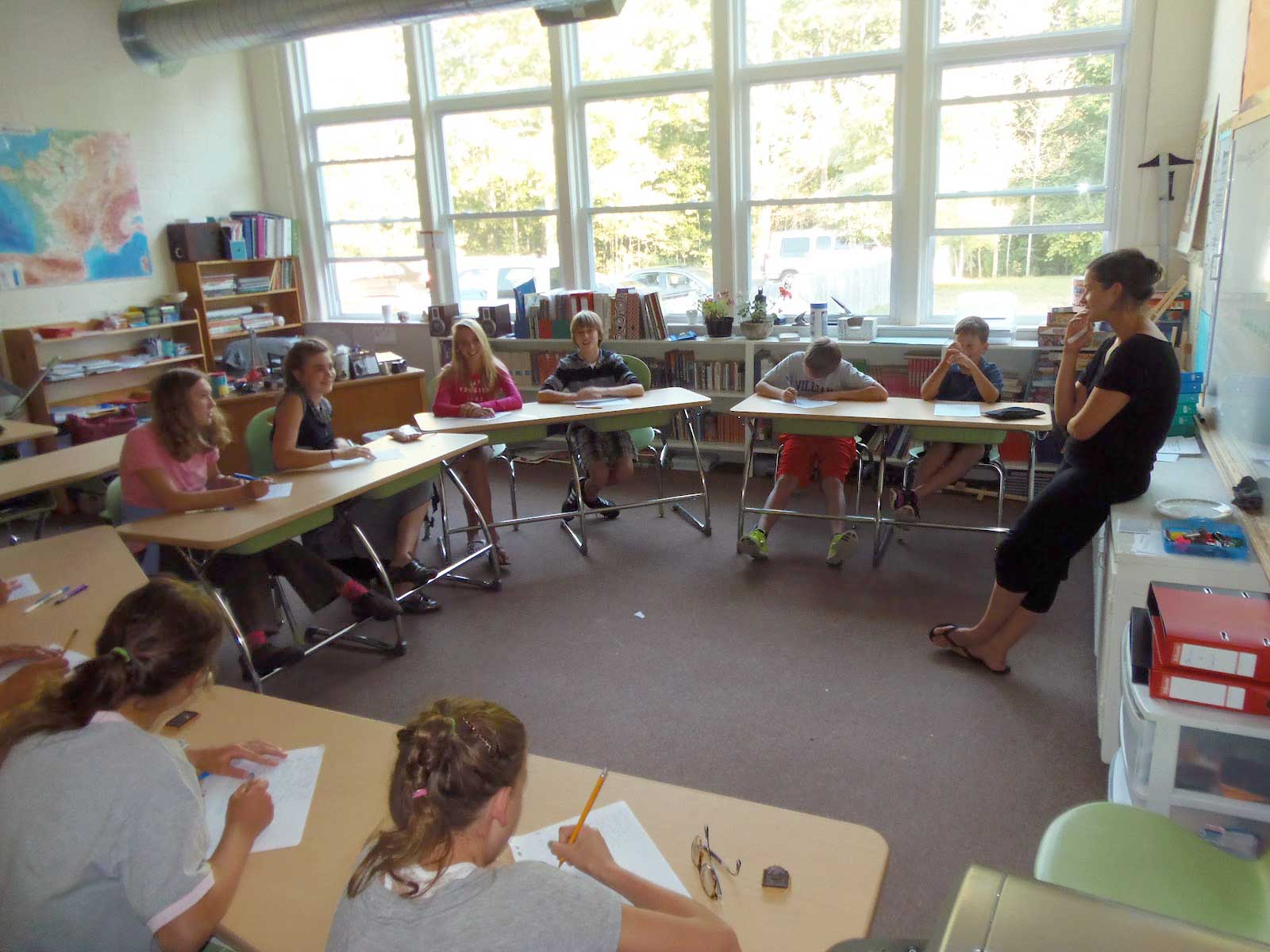
Advanced Middle and High School After School French Classes
L’Ecole Française du Maine offers Advanced French Classes for our students who wish to keep up their French after completing their immersion education at the School. We offer this class primarily to meet our former school students’ needs, to keep challenging them, and to help them reach a higher level of fluency in French. Many of these students were enrolled in our French immersion program for many years or have demonstrated interest in the French language and culture. We also welcome outside students who have had a French experience at some point and who are looking to improve their proficiency in French.
The goal of the after school program is to provide an opportunity for our graduates and other advanced French students to converse in French on a regular basis, and to keep up with written skills in a fun and challenging atmosphere. We understand that students will already be carrying full academic loads in their current middle and high schools. Regular attendance will be required to participate and benefit from the program. While there will be much to learn, there will be limited out of classroom assignments.
The classes will prepare the students for the DELF exams. The Diplôme d’études en langue française (DELF) (English: Diploma in French Studies) is a certification of French-language abilities for non-native speakers of French, administered by the International Centre for French Studies (Centre international d’études pédagogiques, or CIEP) for France’s Ministry of Education.
DELF Exams
The DELF Exam (Diplôme d’Etudes en Langue Française), designed by the CIEP (Centre International d’Etudes Pédagogiques), is an official qualification awarded by the French Ministry of Education certifying a level of fluency in French. Such certifications are useful for school records, as well as college and job applications in French-speaking countries. Scores are valid for life.
The entire program includes six different units. Each unit leads to an exam and, if successfully passed, to a French diploma. The last levels of the program can give access to French universities without having to take another proficiency test before enrolling in a class.
The Diplôme d’Etude de Langue Française (DELF) includes four levels, four exams and four diplomas. Levels (A1, A2, B1, B2) go from basic user (A1, A2) to independent user (B1, B2). Each exam can be taken independently from one another. Two versions of the same level are offered: juniors (elementary, middle, and young high schoolers) and all audiences (older teenagers, college students, and adults). Each level (A, B, C) increases in difficulty and goes beyond linguistic proficiency after the B1 level. A cultural component is part of all exams. Analysis skills become increasingly important after the B1 level. A grade of 50/100 is required to pass the exam, in which students need to demonstrate proficiency in speaking, reading comprehension, listening comprehension and writing.
Typically, French majors in college seek the DELF at the university level, but thanks to their immersion education, our students will be positioned to pass this exam prior to attending university. This is an impressive accomplishment that could exempt the students from foreign language requirements, or allow them to be accepted into higher-level classes sooner than is typical. The institution itself will make the determination, but the DELF will provide the students with an official record of their advanced proficiency in French. Passing the B2/ C1 level should waive language proficiency exam if attending a French higher education institution.

